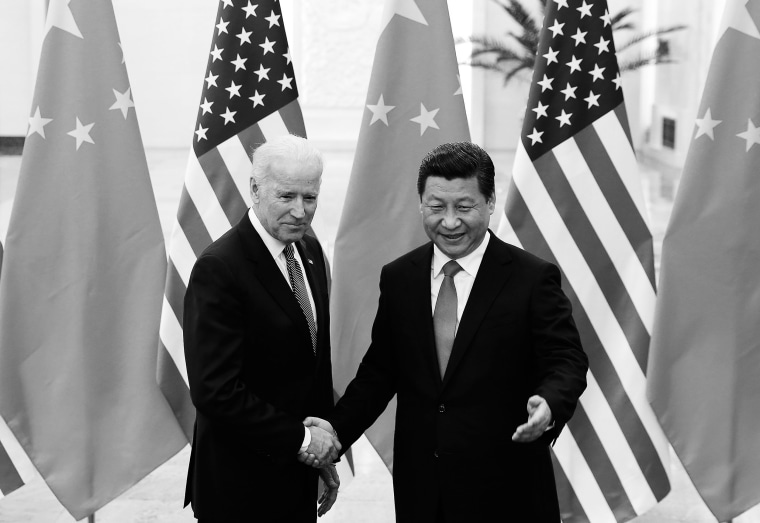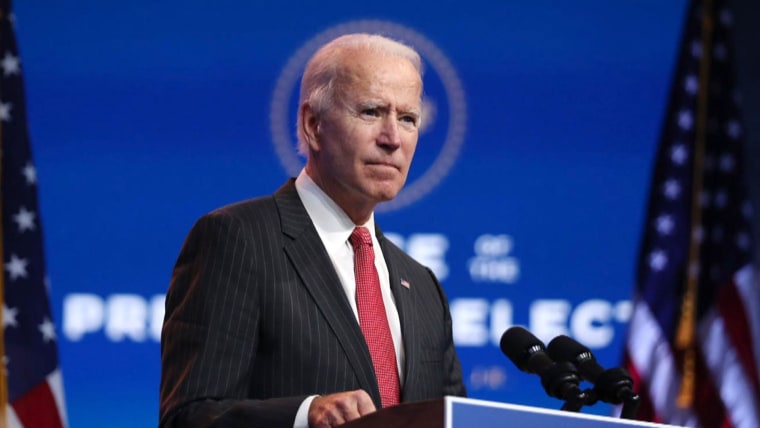In a democracy, every side has an incentive to make the public believe elections have serious consequences. This is certainly true with foreign policy, where the American president has unparalleled power. In part for that reason, Joe Biden repeatedly railed on the campaign trail against President Donald Trump’s international actions and promised a change of course that he argued was essential to maintaining America’s place in the world.
It is important that we not fool ourselves into believing Trump fundamentally changed U.S. foreign policy, nor that the results of the last election will transform the U.S. role in the world.
To help him now that he’s won the election, Biden has named Antony Blinken as his secretary of state and Jake Sullivan as his national security adviser. In contrast with Trump reaching out to the more extreme members of the Republican Party and outsiders for his foreign policy team, Blinken and Sullivan are right in the middle of the mainstream of the Democratic Party, interested in projecting American strength in relation to adversaries, particularly a surging China, but also open to cooperation in certain areas and certainly more inclined to work amicably with allies.
According to conventional wisdom, the Biden presidency will bring a sea change, with these appointments indicative of that. The New York Times says Biden is expected to end many of Trump’s isolationist policies, often promoted as “America First,” which are seen as “stains on American standing in the world.” In this view, Trump was a radical departure from administrations past. Biden will be a return to normalcy, a post-Cold War consensus characterized by a commitment to open markets, a willingness to defend and engage allies and an eagerness to provide global leadership.
Yet it is important that we not fool ourselves into believing Trump fundamentally changed U.S. foreign policy, nor that the results of the last election will transform the U.S. role in the world. America will find itself in the coming years taking a less dominant place in international affairs — but not because of the outcome of this election or the last one. Instead, this transition is taking place because geopolitical and economic realities, mainly the rise of China, are forcing that course upon Washington.
Biden’s victory does presage changes in some parts of American foreign policy where Trump acted more boldly, particularly a return to a Middle East stance more in line with his predecessor and Biden’s former boss, Barack Obama. Mostly, however, the Trump presidency was characterized by continuity rather than change, despite the president’s rhetoric.
Biden to announce his cabinet picks Tuesday
NOV. 23, 202001:08Consider that when Trump came into office, the U.S. was committed to defending countries that collectively made up about 25 percent of the world’s population and over half its gross domestic product. It spent nearly as much on defense as the next 10 nations combined, and had military personnel in over 70 countries and territories abroad. The U.S. regularly sanctioned countries that displeased it, sometimes imposing crippling humanitarian costs for little gain.
Trump changed none of this. For all his griping about the U.S. commitment to allies like South Korea, the structure of alliances remained untouched. NATO expansion continued, as it has since the 1990s, with the alliance adding Montenegro in 2017 and Macedonia in 2020. The U.S. increased its military spending and remained militarily engaged on every inhabited continent.
Trump has not even shown the aversion to “regime change” that his supporters credit him with. His administration reportedly schemed to overthrow the government of Venezuela. And while the “maximum pressure” campaign of sanctions and other measures targeting Iran is ostensibly about getting Tehran to negotiate, it has been seen by many as a thinly veiled regime change effort.
Yet just because Trump did not fundamentally transform American foreign policy does not mean that things will always continue as they have.
Consider that in 1990, the U.S. GDP was 17 times that of China. Depending on the measure used, China has now surpassed the U.S. or will in the next decade or so. The debate in Washington on what to do about this is between “hawks” who favor sanctions and a doubling down on military commitments, and “doves” who prefer economic integration with China’s neighbors. Whichever side wins, the hope of maintaining American power at the same level is an illusion.
Already, the U.S. is angry at allies like South Korea and the Philippines for being more willing to accommodate Beijing than to balance against it. Such frustrations will grow in the future. In mid-November, China and 14 other countries signed a free trade agreement that will shape global politics for decades to come and cement Beijing’s natural role as the center of the Asia-Pacific region.=
The growing power and influence of China can also be felt outside this sphere of influence. For decades, the U.S. has been the hegemonic power in the Middle East. The Trump administration’s campaign against Iran is based on the premise that the U.S. can isolate Tehran to the point where the regime collapses or is forced to surrender to American demands.
Yet there are now more limits to what American pressure can do. In July, it was reported that China and Iran had reached a draft agreement in which the former would provide investment in critical sectors such as banking and telecommunications, while the latter would supply cheap oil. Given the ability of Tehran to strike deals with China, it’s not surprising Biden’s plan is to seek a return to the Iran nuclear deal negotiated by Obama, ending the goal of economically isolating Iran and instead narrowly focusing on nuclear nonproliferation.
Indeed, countries that displease Washington can now find a patron or ally that is wealthier and, for reasons of geography, often better able to offer them benefits from trade. While China has shown no inclination to develop the ability to project military power far from home, it is building up artificial islands in the South China Sea that will help give it an ultimate advantage in the case of war near its borders. While some debate the extent to which China can successfully launch an all-out invasion of Taiwan today, time is on Beijing’s side, and there is little historical precedent for a small country being able to fend off a neighboring superpower.
American leaders will have to realize that the days of unilaterally isolating rogue regimes at will are over, and the future of East Asia will depend more on what happens in Beijing than in Washington.
The rise of China creates new economic and geopolitical realities that cannot be wished away. In the coming years, American leaders will have to realize that the days of unilaterally isolating rogue regimes at will are over, and the future of East Asia will depend more on what happens in Beijing than in Washington.
The ultimate danger is in refusing to accept such realities, and pursuing policies that seek to maintain U.S. hegemony but will only result in crippling trade disputes or even war. Preventing such worst-case scenarios should be the goal of those who desire a less militarized and aggressive American foreign policy. In the long run, restraint will either be accepted by leaders in Washington and, hopefully, managed well, or ultimately be forced upon them.









